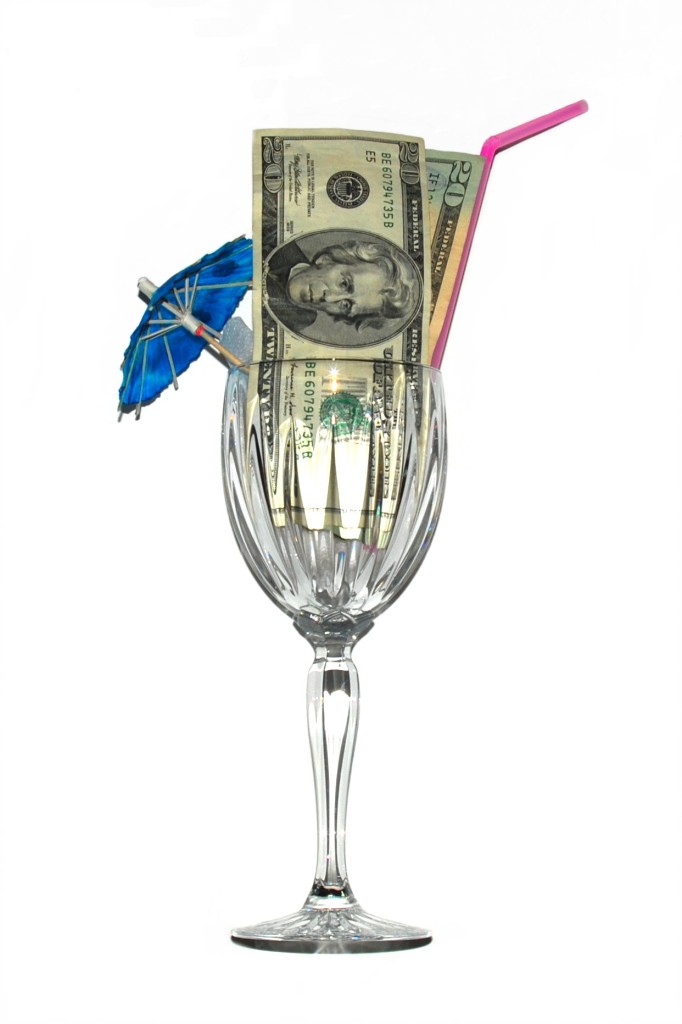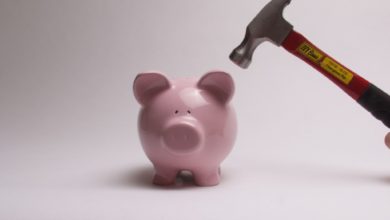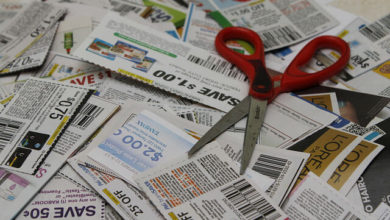3 Good Financial Habits From When I Was Younger
I’ve always loved number crunching when it comes to the green stuff. As a teenager working at my part-time after school job, I would often read the money section of the newspaper on my breaks, and I loved playing around with whatever financial calculators I could find.
This is when I started reading personal finance blogs, though the ones I started with were the big ones, such as Money Sense and Yahoo! Finance. I’m not sure that personal finance blogging was really a “thing” 10 years ago as it is today.
I was hurting for money back then so anything money related was of particular interest to me, as it often is for those who lack it. I was ramping up for college and trying to save my pennies to be able to afford to go.
Many focus on past behaviours that turned out poorly for them, especially on blogs. You’ll see dozens of blog posts about the writer’s worst money mistake or investing blunder or lessons learned from this and that. There are a couple of posts on Add Vodka about just that:
The latter was even featured on Consumerist.
It’s great to reflect back on your past to ensure that you learn from mistakes, but you can cut yourself some slack sometimes too. The positives aren’t discussed nearly enough.
Even though I didn’t have a lot of money, I had a few good financial habits that I am grateful I learned and have maintained:
The Discretionary Spending Budget
At 18, I wanted to go to shopping in Seattle with my best friend. I had just received my first car as a graduation gift from my mom and the world was my oyster. The car was my mom’s old vehicle and it served me well for a couple of years until it went kaputz.
Thankfully I didn’t have a credit card yet, so the only conceivable way that I could go shopping in Seattle was to save up my earnings from my jobs at the local mall.
This is when I discovered the “discretionary spending” budget.
Every time I was paid, I split my paycheque into three parts: I paid the bills with the first portion, took a portion of it out for discretionary spending, and the rest went into a savings account which I would later take out for shopping in Seattle.
With the discretionary spending portion, I was able to go for dinners, to the movies, or wherever my young heart desired as long as it was within that amount. I realize that shopping in Seattle is also discretionary spending, but I was 17, so bear with me.
I hadn’t grown into my frugality at this point, so the discretionary spending budget was ridiculously high. The principle behind my idea was good, though.
Never mind that my savings was for something ridiculous like shopping.
The Number Crunching Phase
I still love to number crunch. I discovered my love of number crunching when I was bored in class during my first and second year of college. Instead of doing what I was supposed to be doing (i.e. listening to the professor), I attacked a sheet of paper with a pencil and my calculator.
I crunched numbers to find out how much I’d be able to save if I got rid of this or that expense; how much I could earn if I got a second job; how much I would save over the course of a year if I went out to the bar less often.
I found crumpled sheets of paper in the bottom of various bags and pockets for months after that.
This is the period during which I had many “ah-ha” moments about money. Numbers don’t lie and the knowledge that I could potentially go on a month long trip by cutting back on eating out once per week over the course of the year was an exhilarating thought.
The Daily Review
Unfortunately I have moved away from this awesome money behaviour in the past year or so, but during one particularly trying period of a few months in my late teens, I got into the habit of tracking my financial position every single day. I’d log on to my online banking, check my credit card balances and just generally get a sense of where I sat. Every single dollar counted. It still does, but a $15 dinner out could easily put me behind on a bill back then.
This was a financial habit that is good to get into. I tweeted the other day about how I got dinged with a fee from my credit card balance being over limit.
Thankfully, the credit card company was good about removing the fee for me as it was due to a delay in my lump sum payment, but I might not have noticed if it wasn’t the end of the month (when I do my review), and wouldn’t have been able to ask for the refund.
It’s nice to look back and not be completely ashamed of the habits of your younger years. We all make mistakes, especially with money, and especially as a young adult, but it can’t be all bad.






When I was also in my college days, I always read about personal finances. I believe that the more you educate yourself, the better your finances will be.
The daily review is huge for me. I spend about 5-10 minutes per day checking my balances and reconciling them on my tracking sheet. There’s always a gap between where you think you are and where you actually are, and by closing it on a regular basis with routine updates, you don’t let that gap grow to a big surprise.
During my younger years, money was not a problem with me because my father had really a good income and he always gave us what we want. I’m not financially educated before until I got married and everything changes. I had lots of mistakes in my life especially for being broke but now I’m trying my very best and learned from it.
I remember before when I was only 10 years old, I started saving money, I know I was a frugal type of person. And when my parents gave me $200 for savings, I put it in the bank and earned only a small interest, at least I didn’t spend it unlike what my brother did. 🙂
Yeah, there are definitely phases and steps into it. I doubt very many people just jumped straight into being super on top of their finances. Some might have been better from the get-go, but there is generally a slow optimization process that goes a long with it as we find the trade-offs of what we need, want, and where we derive our happiness.
I’m glad you were reimbursed that money from your CC. I once bounced a cheque and it was horribly embarrassing… but PC Financial was great about it and they reversed the NSF fees as a “one time good will gesture”.
I still check my accounts everyday (savings, investing, credit cards). I also track all the ins and outs in my excel spreadsheet, a habit I began back in 2006. I wanted to make sure I wasn’t overspending. I still have my spreadsheets. It would be interesting to take a snapshot of it and compare it to my current spreadsheet 😀